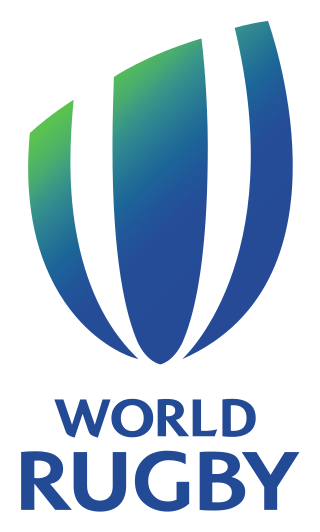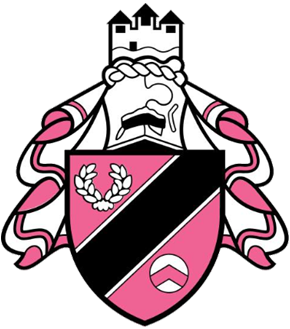
World Rugby is the governing body for the sport of rugby union. World Rugby organises the Rugby World Cup every four years, the sport's most recognised and most profitable competition. It also organises a number of other international competitions, such as the World Rugby Sevens Series, the Rugby World Cup Sevens, the World Under 20 Championship, and the Pacific Nations Cup.

Rugby sevens is a variant of rugby union in which teams are made up of seven players playing seven-minute halves, instead of the usual 15 players playing 40-minute halves. Rugby sevens is administered by World Rugby, the body responsible for rugby union worldwide. The game is popular at all levels, with amateur and club tournaments generally held in the summer months. Sevens is one of the most well distributed forms of rugby, and is popular in parts of Africa, Asia, Europe, and the Americas, and especially in the South Pacific.

The Scotland national rugby union team represents the Scottish Rugby Union in men's international rugby union. The team takes part in the annual Six Nations Championship, where they are the current Calcutta Cup and Doddie Weir Cup holders. They also participate in the Rugby World Cup, which takes place every four years.

The Scottish Rugby Union is the governing body of rugby union in Scotland. Now marketed as Scottish Rugby, it is the second oldest Rugby Union, having been founded in 1873. The SRU oversees the national league system, known as the Scottish League Championship, and the Scottish National teams. The SRU is headed by the President and Chairman, with Mark Dodson acting as the Chief Executive Officer. Dee Bradbury became the first female president of a Tier 1 rugby nation upon her appointment on 4 August 2018.

West of Scotland Football Club is a rugby union club based in Milngavie, Scotland. Founded in 1865, West of Scotland are one of the oldest rugby clubs in the world, and one of the founding members of the Scottish Rugby Union. West have enjoyed a long and successful history, winning numerous Scottish Championships and producing an incredible number of international players, and a strong contingent of British and Irish Lions.

Ayr Rugby Football Club is a rugby union club. Its professional men's side currently plays as Ayrshire Bulls in the Super 6 competition; and its women's side play in the Scottish Womens National One. The club also runs a "Club XV" which competes in the Tennent's National League 1, a 2nd XV "Ayr-Millbrae", which plays in the SRU West Reserve League Division 1, and various age group teams, from age 4, up to age 18.

The Scotland national rugby sevens team competes in the Rugby World Cup Sevens and the Commonwealth Games. It also competed World Rugby Sevens Series although it has been replaced by a combined Great Britain team in this competition.
Berwick Rugby Football Club is a rugby union team that was founded in 1926, and reformed in 1968. The team is based in the town of Berwick-upon-Tweed, just over the border in England. They are affiliated to the English Rugby Football Union and the Scottish Rugby Union. They play in the Scottish Rugby Union Scottish National League Division Two.

Rugby union in Scotland is a popular team sport. Scotland's national side today competes in the annual Six Nations Championship and the Rugby World Cup. The first ever international rugby match was played on 27 March 1871, at Raeburn Place in Edinburgh, when Scotland defeated England in front of 4,000 people. Professional clubs compete in the United Rugby Championship, European Rugby Champions Cup and European Rugby Challenge Cup, while the Scottish League Championship exists for over 200 amateur and semi-professional clubs, as does a knock-out competition, the Scottish Cup. The governing body, the Scottish Rugby Union (SRU), is one of the ten first-tier member nations of World Rugby.
The 2005–06 World Sevens Series was the seventh edition of the global circuit for men's national rugby sevens teams, run by the International Rugby Board since 1999-2000. The series was won by Fiji in the last event of the competition, ending New Zealand's 6-year run as series champions. Fiji needed to finish in fifth place or higher at the London Sevens to ensure that they would win the series ahead of England, but won the tournament handily with 54–14 victory over Samoa in the final.

The 1993 Rugby World Cup Sevens was held at Murrayfield in Edinburgh, Scotland, in April 1993. This tournament was the inaugural Rugby World Cup Sevens tournament. The International Rugby Board invited the established rugby union nations but also were keen to involve emerging nations in the event, recognising the fact that Sevens was providing the bridge between the developed rugby nations and those whose rugby union traditions were less well established.
The 2010 Women's Rugby World Cup was the sixth edition of the Women's Rugby World Cup and was held in England. The International Rugby Board Executive Committee selected the host union following a recommendation from the Rugby World Cup Limited board after considering bids from the Rugby Football Union and the German Rugby Union – it had been England's third successive bid after being rejected in 2002 and 2006. The tournament was again being organised by the International Rugby Board (IRB) as opposed to the host union, and included five matches for all teams played on 20, 24, 28 August and 1 and 5 September. In May 2009 it was announced that the semi-final, 3rd place play off and final would take place at The Stoop and not Twickenham as had previously been suggested. Pool games were held at the Surrey Sports Park in Guildford.
The Nations Cup is a rugby union competition that was first held in 2006 at Estádio Universitário in Lisbon with Argentina A, Italy A, Portugal and Russia taking part. The tournament is part of the International Rugby Board's US $50 million Strategic Investment programme, which also includes the Pacific Nations Cup, the Pacific Rugby Cup and the Americas Rugby Championship.
2006–07 IRB Sevens World Series was the eighth of an annual series of rugby sevens tournaments for full national sides run by the International Rugby Board since 1999–2000.

Women's rugby union is a full contact team sport based on running with the ball in hand. The same laws are used in men's rugby union with the same sized pitch and same equipment. Women's rugby has become popular recently. These days, women's rugby is gaining a higher profile thanks to international tournaments' exposure and financial investment.

The Scotland A team are the second national rugby union team behind the Scottish national side. The first Scotland 'A' fixture took place in 1990.

Rugby union in Scotland in its modern form has existed since the mid-19th century. Scotland has one of the oldest rugby union traditions and has introduced various innovations including rugby sevens.

Rugby union is not a major sport in Singapore. Singapore is currently ranked 58th in the world and 6th in Asia. As of February 2015, there over 12,000 registered players, with more than 2,000 women playing the sport. There are also 15 formally organised clubs with 4 registered Women's sides.
The 2000 Paris Sevens was an international rugby sevens tournament that was part of the World Sevens Series in the inaugural 1999–2000 season. It was the France Sevens leg of the series, held on 27–28 May 2000, at Stade Sébastien Charléty in Paris.
Drew Gill is a former Scotland international rugby union player.












